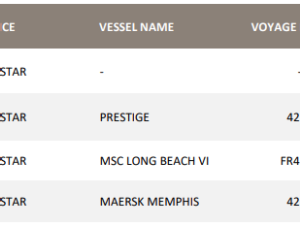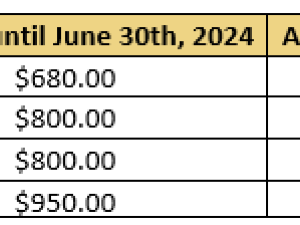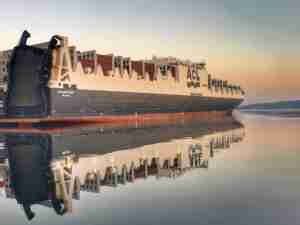China Takes Lead in Pacific Shipping After $6.3 Billion Deal
By: Kyunghee Park and Krystal Chia | Jul 09 2017 at 11:56 PM | Liner Shipping
China is the new leader of shipping trade to the Americas.
State-owned Cosco Shipping Holdings Co.’s $6.3 billion offer to buy Orient Overseas International Ltd. would create an entity that’s the biggest shipping company moving boxes to the North American continent from Asia, beating Copenhagen-based A.P. Moller-Maersk A/S and France’s CMA CGM SA. The takeover, announced Sunday in Hong Kong, would also create the biggest sea-box carrier through the Pacific Ocean.
The consolidation may help raise container rates on the Americas route—the second-busiest in the world—a critical piece in the survival of the shipping industry that has been battling slumping charges and overcapacity. Earlier this year, Maersk and Hyundai Merchant Marine Co. said that they managed to get higher fees from customers on their annual rate-negotiation talks on the trans-Pacific routes. Moving goods to Europe from Asia is the world’s biggest shipping trade route.
The Cosco-Orient Overseas combination would have the capacity to move a weekly average of 77,208 containers between Asia and North America, based on end-May data from Alphaliner, a shipping data provider. In the Asia-Europe trade lane, the combination will become only the third biggest.
Shares of Orient Overseas surged as much as 25 percent, the biggest intraday gain in eight years, and traded at HK$71.70 as of 11:50 a.m. in Hong Kong. Cosco shares jumped as much as 12 percent.
Cosco’s offer to buy Orient Overseas was a 49 percent premium, based on the average 20-day trading price before the announcement. That is the biggest for a major container-shipping deal since 1997, the year Hong Kong passed from British hands to China. In the same year, Singapore’s Neptune Orient Lines Ltd. bought APL Ltd. for $833 million, offering a premium of 57 percent.
To read about how Chinese companies are surging in Hong Kong, click here.
The controlling shareholders of Orient Overseas have accepted Cosco’s offer at HK$78.67 a share, which still needs regulatory approvals and consent from Cosco’s investors. The family of Tung Chee-hwa, the first chief executive of Hong Kong, holds about 69 percent of the shipping line.
The deal was announced a little more than a week after China’s President Xi Jinping visited Hong Kong as the former British colony marked the 20th anniversary of the handover. Tung, currently a vice chairman of China’s top political advisory body, Chinese People’s Political Consultative Conference, was hand-picked by Beijing in 1997 for the top job in the financial hub and has been advising the central leadership on foreign policies especially China-U.S. relations.
The deal could also stoke concerns the city’s role as a major shipping and financial hub is diminishing amid further inroads by state-owned companies and the rise of other centers on the mainland such as Shenzhen, Guangzhou and Shanghai.
“Rather than being one shiny spot, Hong Kong is now more seen as part of the Pearl River delta,” said Yu Zhanfu, a Beijing-based principal at Roland Berger Strategy Consultants. “For the companies being acquired, there’s more to gain than to lose. They will benefit from having closer access to the broader market in the mainland.” Mainland Chinese companies can also learn from the city-based firms that have thrived in a market-based environment, he said.
The enlarged company will operate more than 400 vessels with capacity exceeding 2.9 million twenty-foot equivalent units, including order book. Cosco currently has a market share of 8.4 percent while Orient Overseas has 3.2 percent, according to Alphaliner. Their combined 11.6 percent share would make the merged entity the third-biggest container-shipping company, overtaking CMA CGM with 11.2 percent, according to the shipping data provider.
The shipping industry is “fragmented ” and consolidation can help transform the business for the benefit of customers, Maersk, the world’s biggest container operator, said Monday in reaction to Cosco’s takeover. There is a consolidation wave in the industry and it is difficult to say how big it will be, the company said. A representative for Hyundai Merchant said the company is “closely monitoring to see how this development will impact the industry.”
Earnings of shipping companies will improve in the second half of the year “driven by higher trans-Pacific annual contracts,” said Andrew Lee, an analyst at Jefferies in Hong Kong.










